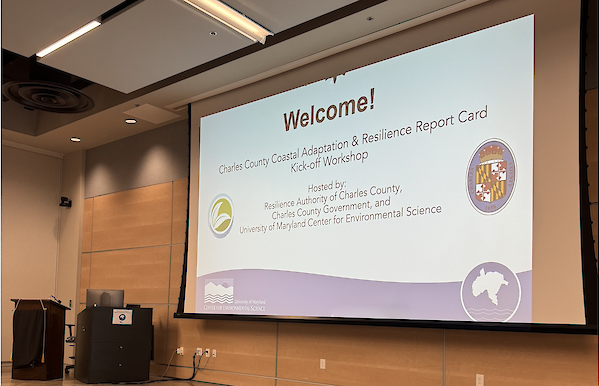2023: A year in review

IAN is reflecting on a successful year in 2023. In the past year, we maintained many valuable collaborations with partners across the globe. We engaged stakeholders through listening sessions and workshops, supporting the creation of robust ecosystem health assessments. We attended numerous conferences and meetings, connecting with experts across multiple fields, and learning new methods to improve our engagement and assessment efforts. We appreciate everyone who has made this year a success, and we look forward to what 2024 has in store!
Notable Publications in 2023
- The first-ever New Caledonia Report Card
- The first-ever Rogue River Basin Report Card
- The annual Chesapeake Bay and Watershed Report Card
- The first-ever Potomac River and Watershed Report Card
- The first-ever Non-Tidal Patapsco River Report Card
- The annual IAN Report Card
- The first-ever White River Report Card
- The first-ever Fiji Report Card
- The annual Maryland Coastal Bays Report Card
Peer-Reviewed Publications
We published 10 peer-reviewed papers spanning a variety of environmental topics. Here are a few highlights:
- Effects of point and nonpoint source controls on total phosphorus load trends across the Chesapeake Bay watershed, USA (Environmental Research Letters, Qian Zhang)
- Rise of Ruppia in Chesapeake Bay: Climate change–driven turnover of foundation species creates new threats and management opportunities (Ecology Sustainability Science, William Dennison, Jonathan Lefcheck)
- Socio-ecological analysis of the eutrophication in Chesapeake Bay, USA (Frontiers in Marine Science, María Esther Leyva Ollivier, Heath Kelsey)
Advancing climate resilience and mitigation in the U.S. water sector

IAN’s ongoing work on adaptation and resilience was highlighted by the International Association for Hydro-Environment Engineering and Research (IAHR) in the third issue of their Hydrolink Magazine. The article, titled Net-Zero and Water: Highlighting U.S. Innovation and action in Mitigation, Adaptation and Resiliency, provides a comprehensive overview of the evolving efforts in the United States to address the intersection of net-zero goals and water management. It emphasizes the need for collaborative, multi-level strategies to mitigate GHG emissions, enhance resilience, and achieve climate goals in the water sector.
Teaching Science Communication in 2023
- January: UMCES Graduate Students
- June: IMET Summer Interns
- August: Georgia Southern University faculty
- October: ZMT Students
Projects completed supporting EPA Chesapeake Bay Program
- Launched a new microsite (40years.chesapeakebay.net) to celebrate the Chesapeake Bay Program's 40th anniversary.
- Launched a new website (protectlocalwaterways.org) to support and inform decision-making by local government leaders across the Chesapeake Bay watershed.
- Launched new Office Staff, Internships, Career Development, and Web Development & Support pages on ChesapeakeBay.net.
- Published accessibility best practices for Chesapeake Bay Program staff.
COAST Card Project Highlights
The Coastal Ocean Assessment for Sustainability and Transformation (COAST Card) project had an eventful year consisting of both local and international travel.
- Conference and workshop in Manila, Philippines
- Conference and workshop in Tokyo, Japan; site visits to Ishigaki Island and Sekisei Lagoon, Japan
- Stakeholder listening sessions in the Potomac Watershed, USA:
- Alexandria, VA
- Leonardtown, MD
- Woodbridge, VA
- Cumberland, MD
- Silver Spring, MD
The international conferences and workshops allowed project partners to meet in person, make progress on goals, and gain a deeper understanding of the different study sites. The five stakeholder listening sessions held across the Potomac Watershed in the summer, facilitated by our second cohort of Global Sustainability Scholars, provided important insights on values, threats, and visions related to the watershed.
Charles County leads the way for local coastal adaptation

On December 13th, we held our first workshop at the Velocity Center in Indian Head, MD to kick off the Charles County Coastal Adaptation project. This project is a partnership between the Resilience Authority of Charles County, the Charles County Government, and the University of Maryland Center for Environmental Science and aims to produce a climate adaptation report card for Charles County, which will inform the county’s Climate Action Plan. More workshops will be planned in the coming months, and we look forward to better understanding Charles County’s preparedness for climate change.